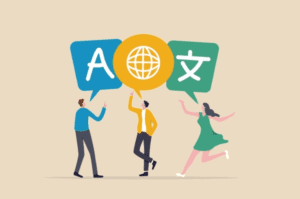The following is a guest article by Nate Klause, Content Marketing Manager at Boostlingo
Community health centers exist to remove barriers to care. For Federally Qualified Health Centers (FQHCs), language is one of the most pressing barriers. Nearly one in three patients across the FQHC system is best served in a language other than English, making medical interpreting essential for safe, effective, and equitable care. Federal law requires it, but beyond compliance, clear communication builds trust, improves outcomes, and reduces costly errors.
The challenge for FQHC leaders is choosing the right interpreting partner. Budgets are tight, and patient demand is growing across both common and less-common languages. Coverage has to extend across in-person visits, telehealth, and after-hours encounters. Increasingly, centers need more than just an interpreter—they need reliable data, strong integrations, and the assurance that service is available every time a provider clicks “connect.”
Top 10 Medical Interpreting Providers in 2025
We evaluated providers on three things that were top of mind for FQHCs in a recent healthcare interpreting study: quality for the price, consistent remote access (phone and video), and data/reporting that supports compliance and continuous improvement.
1. Boostlingo
Headquartered in Austin, TX | Founded 2016
Boostlingo specializes in on-demand medical interpreting for community healthcare. Its HIPAA-compliant phone and video platforms provide fast access to qualified interpreters across 300+ languages. Pricing offers both subscription and pay-as-you-go options, helping FQHCs stretch grant and reimbursement dollars.
Administrators get real-time dashboards and exportable reports to track usage, language mix, and policy compliance. Ongoing investment in AI-assisted features (language detection, interpreting, transcripts, summaries) positions Boostlingo as a future-ready partner. For FQHCs seeking dependable connection rates, clear pricing, and strong data, Boostlingo is a top pick.
2. LanguageLine Solutions
Headquartered in Monterey, CA | Founded 1982
One of the most established U.S. providers, LanguageLine offers 24/7 access to interpreters in 240+ languages via phone and video. Its depth of medical experience and interpreter training are proven across large health systems.
Costs can trend higher than those of some newer competitors, but LanguageLine’s combination of scale, reliability, and healthcare specialization makes it a strong option for centers that prioritize experience and breadth.
3. AMN Healthcare Language Services (formerly Stratus Video)
Headquartered in Dallas, TX | Founded 2012
AMN’s language division (built on Stratus Video) brings robust video remote interpreting that integrates smoothly with telehealth and inpatient workflows. Providers can connect quickly without disrupting the clinical encounter.
For FQHCs, the appeal is integration depth, broad language coverage (200+ by phone; 40–50+ by video), and healthcare-grade QA. Pricing can be on the higher side; in return, centers get a platform widely deployed across U.S. health systems and compatible with major electronic health record (EHR)/telehealth environments.
4. GLOBO
Headquartered in Philadelphia, PA | Founded 2009
GLOBO pairs human interpreting with transparent, real-time analytics. The admin dashboard lets FQHC leaders view usage, spend, and language trends at a glance, which is useful for audits, grants, and operational planning.
Coverage includes 24/7 phone and video access with vetted medical interpreters. Pricing is competitive and scales with demand. New users may initially find the data depth extensive, but GLOBO stands out for teams that want actionable insights alongside reliable access.
5. Equiti (formerly Martti)
Headquartered in Sunrise, FL | Rebranded August 2024
Equiti continues the Martti legacy with a video-first platform designed for healthcare environments. It supports both on-demand and scheduled sessions and is built to integrate with EHRs, telehealth solutions, and inpatient workflows.
Historically, the program has offered 250+ languages overall and 90+ by video, including RID-credentialed American Sign Language (ASL). Equiti emphasizes security, interpreter training, and measurable quality. Pricing is less flexible than some competitors, but the video experience and clinical integration make it a strong fit for centers with heavy virtual-care usage.
6. Certified Languages International (CLI)
Headquartered in Portland, OR | Founded 1996
CLI delivers 24/7 medical interpreting by phone and video with straightforward onboarding and accessible pricing, which is appealing for FQHCs who want to balance volume with budget limits. Interpreters are trained in medical terminology and privacy practices.
The technology footprint is intentionally simple, which many clinics appreciate for quick adoption. CLI offers a solid quality-to-price balance for centers needing reliable remote coverage and predictable costs.
7. Linguava
Headquartered in Portland, OR | Founded 2010
Linguava serves healthcare organizations nationwide with in-person, phone, video, and ASL interpreting. The company’s community-centered approach and in-house Interpreter Academy (training program) align well with FQHC values around cultural and linguistic competence.
Linguava also supports program design and process improvements for language access. While it lacks the global scale of the largest vendors, its tailored service model and regional strength make it a good match for clinics that value local relationships and practical training.
8. Ubiqus (now Acolad)
Global HQ in Paris, France; U.S. offices | Founded 1991
Ubiqus (now Acolad) provides interpreting, translation, and transcription, giving FQHCs a single partner for language access plus multilingual patient education and outreach. Remote interpreting is available by phone and video with healthcare-trained interpreters.
The breadth is an advantage for centers that want integrated services (interpreting + translation workflows, unified invoicing, and documentation). Smaller clinics may find their enterprise posture less personal, but their scope and compliance rigor support complex, multi-site needs.
9. Language Services Associates (LSA)
Headquartered in Horsham, PA | Founded 1991
LSA offers large-scale remote interpreting in 200+ languages with competitive pricing. Its long tenure in healthcare and broad interpreter network helps clinics handle variable demand and after-hours coverage.
The platform is straightforward and dependable. While it lacks advanced bells and whistles, many FQHCs value the combination of cost, coverage, and simplicity.
10. Sorenson
Headquartered in Salt Lake City, UT | Founded 2000
Sorenson is a leader in accessibility services for deaf and hard-of-hearing patients, providing in-person and video remote ASL interpreting (and expanding into spoken-language and captioning).
For FQHCs, Sorenson is an essential partner for ADA-aligned access, especially when signed-language coverage must be guaranteed. Its national infrastructure supports consistent availability, with particular strength in ASL VRI.
Choosing the Right Interpreting Partner for Your FQHC
For FQHCs, choosing the right interpreting partner is about more than compliance. It is about making sure every patient can communicate clearly with their provider, regardless of language. The ten providers highlighted here represent the strongest options in 2025, offering reliable quality at the right price, dependable access through phone and video, and the data insights needed to meet reporting requirements and improve care delivery. FQHC leaders can select a partner supporting patient trust and organizational performance by focusing on these core factors.
 About Nate Klause
About Nate Klause
Nate Klause is the Content Marketing Manager at Boostlingo, where he leads content strategy across healthcare and language service sector markets. He is the author of the Healthcare Interpreting Report and a speaker on language access and interpretation technology in healthcare.
Boostlingo is a proud sponsor of Healthcare Scene.

